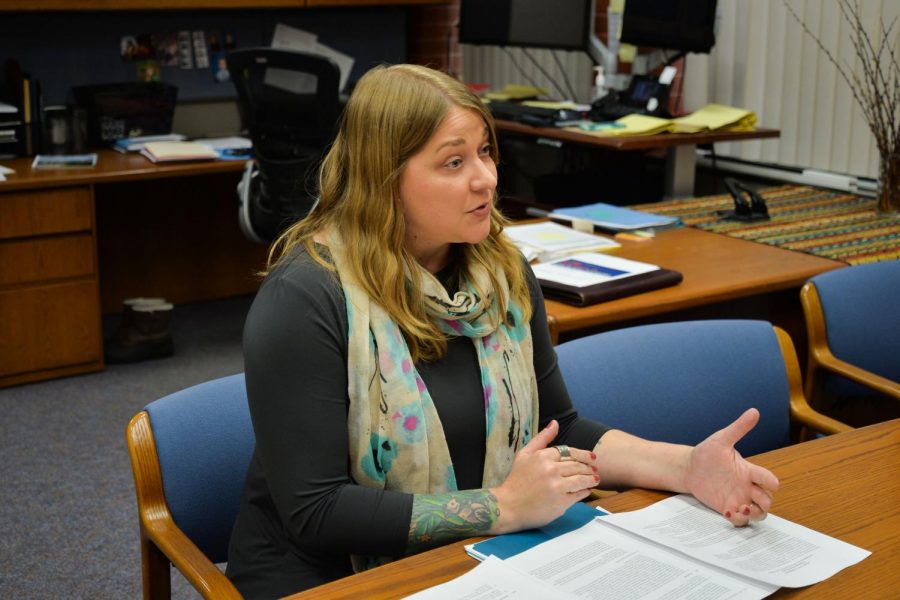University official trains staff, students on Title IX changes
Definitions of misconduct, harassment updated; prospective university hires can be questioned about prior behavior
JOEL ROEBER | DAILY EVERGREEN FILE
Holly Ashkannejhad, director of WSU’s Compliance and Civil Rights, said Title IX and House Bill 2327 protect students.
September 1, 2020
WSU hosted live trainings for staff and students on updates made to Title IX guidance for WSU Compliance and Civil Rights — previously known as the Office of Civil Rights Compliance and Investigation — including redefining sexual harassment and investigative procedures.
The university is using a more expansive definition of misconduct because of the restrictive description under the updated Title IX regulations, said CCR Director Holly Ashkannejhad.
WSU can only acknowledge a Title IX harassment claim when it occurs within a WSU educational program or activity. For example, if two WSU students are involved in a sexual assault incident at a WSU fraternity, the incident is acknowledged by the university.
Violations of Title IX include unwelcome attention that is offensive, objectifying or denies a person equal access to university activities and educational programs, according to CCR’s website.
The university also has two categories of sexual harassment under Executive Policy 15. One category includes Title IX and the other covers a broader range of behavior, she said.
“It is important to understand WSU’s definition of consent,” Ashkannejhad said. “It requires all parties to give verbal consent that any reasonable person would understand.”
House Bill 2327 serves to further protect the WSU community and students, Ashkannejhad said.
“Personnel files do not travel with an employee,” she said. “This bill allows the office to ask any prospective hire if they have ever been found guilty of any form of sexual harassment.”
Students will also have two options for sharing information with Title IX coordinators. Students can either report an incident or submit a formal complaint, Ashkannejhad said.
Students who have experienced harassment or discrimination should file a report, she said. A formal complaint can be made if the individual is in need of support or consultation.
“Formal complaints can be made if the individual is seeking an informal investigation or resolution,” Ashkannejhad said.
Whether the individual files a formal complaint or not, resources are available to both parties, she said.
WSU’s CCR provides guidance and grievance procedures to the community, as well as resources and support for individuals who experienced harassment or discrimination, Ashkannejhad said.

















